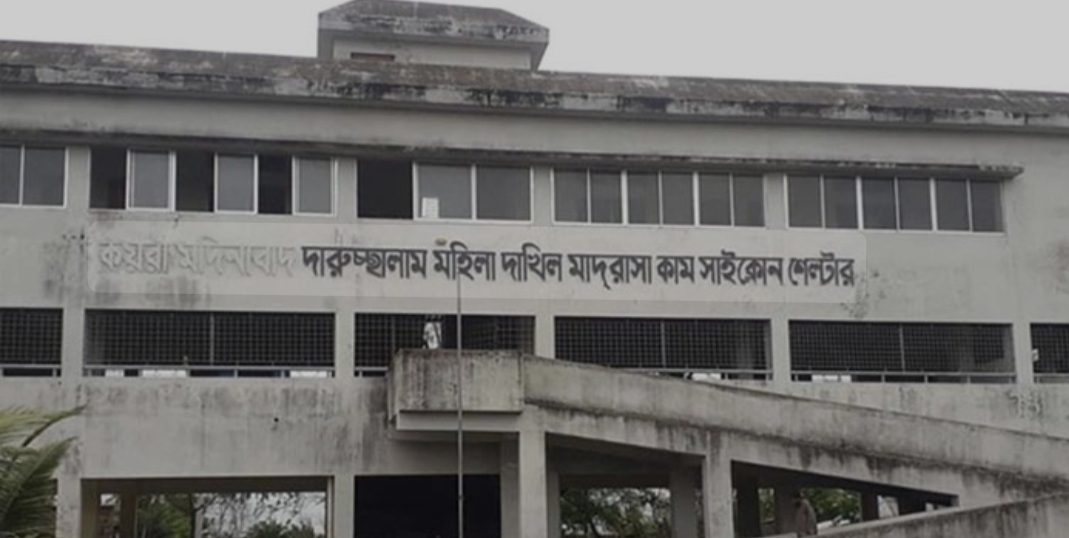News Flash
News Flash

By SM Zahid Hossain
KHULNA, March 17, 2025 (BSS) - The gender-sensitive infrastructure of cyclone
shelter in coastal belt would place trust in women and girls.
"By integrating the gender perspectives into every stage of preparedness,
response, and recovery of cyclonic disasters, we can anticipate that
vulnerability will no longer disproportionately affect women and girls," the
recommendation came up from a study by Md Mostafizur Rahman, head of the
research and an associate professor of Urban and Rural Planning Discipline of
Khulna University (KU).
Women and girls who seek refuge in cyclone shelters often face sexual
harassment due to the lack of basic facilities, such as separate toilets,
privacy, and safety measures, according to the study.
These shelters are overcrowded, with men and women having to stay together in
the same space, which exposes females to harm, it added.
Mostafizur Rahman proposed several recommendations, including the
construction of gender-sensitive infrastructure in cyclone shelters.
"Cyclone shelters need separate spaces for women, safe latrines, and
sufficient lighting. It also needs to improve road access to shelters for
pregnant women and people with disabilities," he stated the study.
Additionally, he said it is important to include women-led committees in the
design and maintenance of shelter infrastructure to ensure safety and
security.
Talking to BSS today, Md Mostafizur Rahman, also an expertise in Promoting
Disaster Risk Reduction Organising Sustainable Teamwork, Uniformity,
Togetherness and Initiatives (PROSTUTI) Project of a non-government
organisation (NGO), said the research focused on some of the most disaster-
prone areas of Koyra upazila, including Koyra Sadar and South and North
Bedkashi unions.
The month-long joint study on the Disaster Vulnerability of Women and Girls
in Koyra upazila of Khulna began in January and ended in February this year.
The research was jointly carried out by an independent group from the Urban
and Rural Planning (URP) Discipline of Khulna University and expert resource
persons related to the PROSTUTI project.
The cyclone shelters at the coastal belt are currently faulty, unsafe and
unusable for women, girls, children and physically-challenged people.
"In the absence of separate spaces for men and women, sexual harassment has
occurred. Moreover, the lack of safe toilets and proper sanitation has caused
health issues for women and girls, especially during menstruation," Mostafiz
said.
The study also revealed the difficulties faced by vulnerable groups, such as
pregnant women, the elderly, and people with disabilities, said the associate
professor. Poor infrastructure and inadequate road access make it even harder
for these individuals to reach cyclone shelters during emergencies.
"Girls who were harassed at the shelters have told us that they could not
discuss the matter with their families because of social stigma," he
explained.
In conclusion, with this research, we want to say that it requires
institutionalizing female leadership in Disaster Risk Reduction (DRR)
committees, integrating gender-targeted budgeting, and improving both the
physical condition and the management of cyclone shelters for women and
girls, he added.
Talking to BSS, Shikha Rani Munda, a representative from the Indigenous Munda
community of Koyra upazila, shared a harrowing story of the additional
struggles faced by girls during menstruation during the super cyclonic storm
'Aila.'
"When a girl has her period while taking shelter, the lack of safe toilets
makes her even more vulnerable to health issues," Shikha said.
"The same applies to elderly women. Without proper sanitation, they too face
severe difficulties. This lack of facilities forces many women to feel unsafe
in cyclone shelters," she added.
Ruli Biswas, upazila Nirbahi officer (UNO) of Koyra upazila, said although
women's participation in the workforce has increased, the barriers they face
during disasters are still significant.
"We need to focus on these issues in future disaster management projects to
ensure that women and vulnerable groups are not left behind," she added.